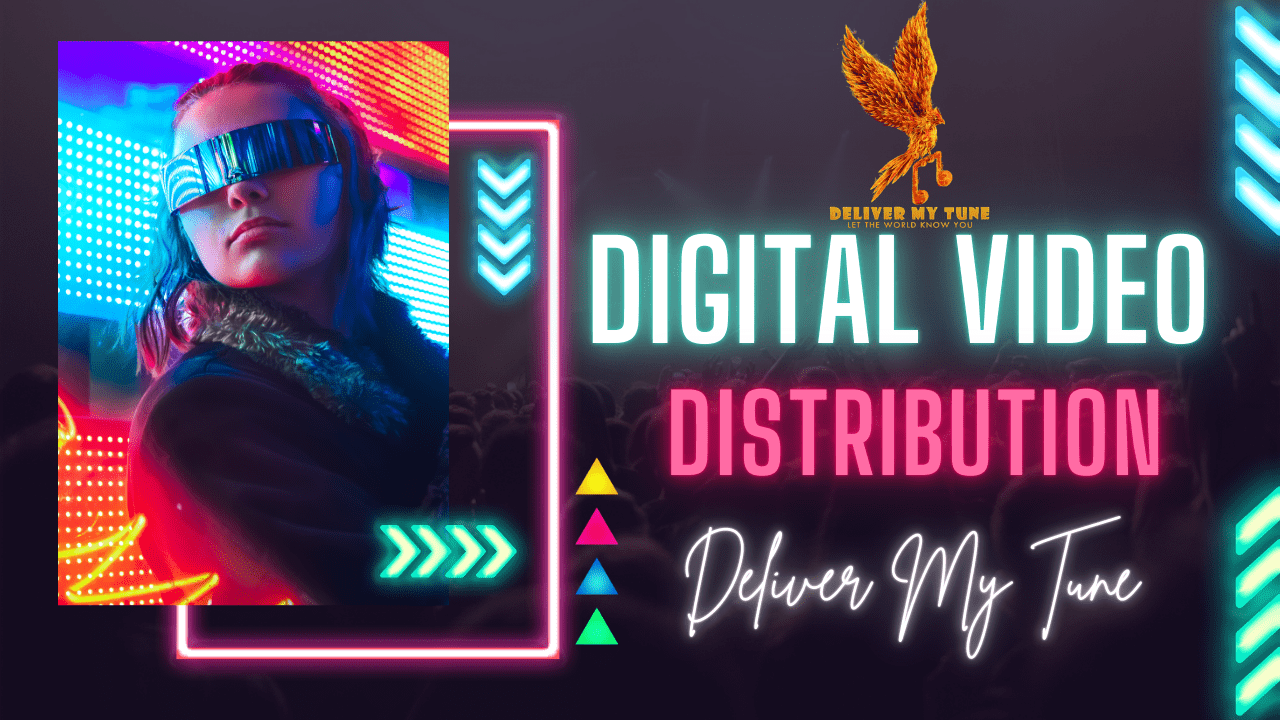The digital age has transformed how content is created, shared, and consumed. Videos have emerged as the most engaging form of media, captivating audiences worldwide. From bite-sized clips on TikTok to cinematic masterpieces on Netflix, video content is everywhere. At the center of this phenomenon is digital video distribution, the process that enables creators to reach global audiences instantly.
Gone are the days when distribution was limited to theaters, DVDs, or broadcast channels. With digital distribution, creators enjoy unprecedented access to platforms and audiences, irrespective of geographical boundaries. This blog delves into the core aspects of digital video distribution, highlighting its importance, strategies, and future trends.
What is Digital Video Distribution?
Simply put, digital video distribution is the delivery of video content via digital platforms rather than traditional mediums like television or physical media. It leverages online platforms to stream, download, or purchase videos, offering creators multiple ways to share their work and generate revenue.
Key Elements of Digital Video Distribution:
- Content Creation: High-quality videos ready for diverse audiences.
- Platform Selection: Choosing the best platforms based on content type and audience preferences.
- Monetization: Generating revenue through ads, subscriptions, or pay-per-view.
- Analytics: Tracking engagement to improve performance and reach.
Importance of Digital Video Distribution
The digital approach is revolutionizing content delivery by enabling:
- Global Access: A creator in India can reach viewers in the US, UK, or Japan in seconds.
- On-Demand Viewing: Audiences consume content at their convenience, boosting engagement.
- Multiple Revenue Streams: Ads, subscriptions, and direct sales open various income channels.
The Evolution of Video Distribution
To understand the significance of digital video distribution, it’s essential to explore its evolution:
Traditional Distribution:
In the past, distributing video content meant navigating costly and time-intensive processes like:
- Theatrical Releases: Limited to specific regions and audiences.
- DVDs and Blu-rays: High production costs and distribution constraints.
- Television Broadcasting: Heavily regulated, requiring significant investments.
The Digital Shift:
With the rise of the internet and streaming services, the landscape changed dramatically:
- Streaming Platforms: Platforms like YouTube, Netflix, and Amazon Prime democratized content access.
- Social Media Videos: Short-form videos on Instagram, Facebook, and TikTok became a phenomenon.
- Direct-to-Consumer: Creators bypass traditional gatekeepers, interacting directly with audiences.
Why Digital Video Distribution Matters
Digital video distribution is more than a method—it’s a necessity for creators. Here’s why:
1. Reach New Audiences
Through platforms like YouTube and Vimeo, creators can reach millions worldwide. This expands visibility and builds a global fan base.
2. Cost-Effective Solutions
Distributing videos digitally eliminates the need for costly physical formats or intermediaries, making it a budget-friendly option.
3. Instant Feedback
Analytics tools provide real-time data on audience behavior, helping creators refine their strategies.
4. Unlimited Content Access
Audiences can access content anytime, anywhere, leading to higher viewer satisfaction and engagement.
Popular Platforms for Digital Video Distribution
Selecting the right platform can make or break your digital video distribution strategy. Below are some of the most popular platforms:
1. YouTube
With over 2 billion monthly active users, YouTube is the go-to platform for creators.
- Pros: Free to use, massive audience base, robust analytics.
- Monetization: Ad revenue, channel memberships, super chats.
2. Netflix
Ideal for high-budget films and series.
- Pros: Global reach, high-quality content delivery.
- Monetization: Subscription-based revenue.
3. Vimeo
Favored by professionals for its customizable player and ad-free viewing.
- Pros: High-quality video hosting, detailed analytics.
- Monetization: Pay-per-view, rentals, and subscriptions.
4. TikTok
A leader in short-form, viral content.
- Pros: Massive engagement rates, ideal for trends and challenges.
- Monetization: Creator funds, brand sponsorships.
5. Amazon Prime Video
Perfect for independent filmmakers looking to monetize their work.
- Pros: Access to global audiences, revenue sharing models.
Steps to Excel in Digital Video Distribution
Follow these steps to create a seamless digital video distribution process:
Step 1: Create Exceptional Content
Ensure your video is visually and audibly appealing. High production quality increases shareability.
Step 2: Choose the Right Platforms
Research audience demographics to find platforms that suit your content.
Step 3: Optimize Metadata
Use relevant keywords, descriptions, and tags to improve discoverability.
Step 4: Engage with Your Audience
Respond to comments and actively promote your videos to maintain viewer loyalty.
Step 5: Monitor Performance
Regularly analyze engagement metrics to fine-tune your strategy.
Monetization Strategies for Digital Video Distribution
Digital distribution offers multiple ways to earn revenue. Here are some effective strategies:
1. Ad-Based Revenue
Platforms like YouTube and Facebook share ad revenue with creators based on views.
2. Subscription Services
Platforms like Netflix allow creators to earn through subscription fees.
3. Pay-Per-View
Amazon Prime and Vimeo On Demand let audiences rent or purchase videos.
4. Crowdfunding
Use Patreon to gain financial support from dedicated fans.
5. Brand Sponsorships
Collaborate with brands for promotional deals that align with your content.
Challenges in Digital Video Distribution
While digital video distribution is transformative, it has its challenges:
1. Content Saturation
The abundance of videos online makes it hard to stand out. Unique and engaging content is key.
2. Monetization Struggles
New creators often find it hard to generate substantial revenue initially.
3. Piracy Concerns
Ensuring copyright protection is crucial to safeguarding your work.
4. Platform Limitations
Dependence on algorithms can impact content visibility.
Future Trends in Digital Video Distribution
The future of digital video distribution is full of exciting possibilities:
1. Interactive Content
Videos with clickable elements and interactive storytelling are on the rise.
2. Virtual Reality (VR) and Augmented Reality (AR)
These technologies are set to revolutionize content creation and distribution.
3. Blockchain for Royalty Management
Blockchain technology ensures transparent payments and copyright protection.
4. AI-Driven Personalization
AI will continue enhancing content recommendations, increasing viewer engagement.
Deliver My Tune: Revolutionizing Digital Distribution
Deliver My Tune simplifies digital video distribution, empowering creators with robust tools and global reach. Key features include:
- Comprehensive analytics for real-time performance tracking.
- Seamless platform integration for easier content delivery.
- AI-powered tools to optimize video metadata.
Conclusion
Digital video distribution is no longer optional—it’s the cornerstone of modern content sharing. By leveraging the right platforms, embracing analytics, and implementing effective strategies, creators can expand their reach, maximize revenue, and build lasting connections with their audience.
With platforms like Deliver My Tune offering cutting-edge solutions, navigating the digital landscape becomes easier than ever. Whether you’re an aspiring creator or an established filmmaker, now is the time to master digital video distribution and unlock your content’s full potential.
Related Articles:
For further reading, explore these related articles:
- Exploring the Best Music Distribution Service in India for Independent Artists: A Comprehensive Guide
- The Ultimate Guide to Music Distribution Services: How to Get Your Music Heard Worldwide
- Best Music Distribution Service for Independent Artists and Labels in 2024
For additional resources on music marketing and distribution, visit Deliver My Tune.






